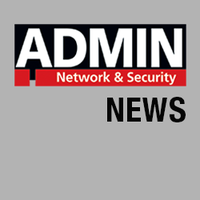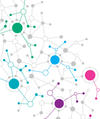Turing Pi Now Offers a Raspberry Pi Kubernetes Cluster
For admins looking to deploy a robust cloud-native app testing environment, Turing Pi has you covered. This new Raspberry Pi cluster is a mini ITX-size motherboard, designed to run up to seven computers in a cluster. But this isn’t just any Raspberry Pi-based cluster. The Turing Pi is designed specifically to support a cloud-native stack.
The Turing Pi clusterboard supports Raspberry Pi compute modules which are interconnected with a 1 Gbps network (although each node is limited to 100 Mbps USB speed) and can share RAM and storage between the nodes. Other features include multiple I/O, nodes power management via an I2C bus, up to 28 cores, 7 x 40 pin GPIO, HDMI, audio jack, and ATX connections, 8 USB ports, real-time clock, flash mode, and boot mode.
The Turing Pi is capable of running Kubernetes and Docker Swarm, can be used as a home server or cloud-native apps hosting, and can host K8S, K3S, Minecraft, Plex, Owncloud, Nextcloud, Seafile, Minio, Tensorflow, and more.
This cluster board is aimed primarily at developers and researchers, as the Raspberry Pi compute modules are intended for industrial applications. Each compute module has a 1.2 GHz quad-core processor, 1 Gb of RAM and up to 32 Gb eMMC storage. Compute modules sell for approximately $35.00 USD each.
Constantin Alexandrov, founder of Turing Machines Inc., says of the Turing Pi, "The concept of a cluster board is similar to a PC motherboard, but with Ethernet instead of a PCI bus. Rather than using just one processor, the cluster board can combine multiple processors and multiple types of processors. As an example, general-purpose compute modules can work in tandem with machine learning modules. This heterogeneous approach could open a wider adaptation of machine learning applications at the edge."
The preorder price for the Turing Pi cluster is $189.00 USD. That price is for the Turing Pi board only (so it doesn’t include compute modules).
Original source: https://turingpi.com/media.html
Subscribe to our ADMIN Newsletters
Subscribe to our Linux Newsletters
Find Linux and Open Source Jobs
Most Popular
Support Our Work
ADMIN content is made possible with support from readers like you. Please consider contributing when you've found an article to be beneficial.





